1. self-blame
1.1. helplessness
1.2. exiled in the world of the healthy
1.2.1. society's stigmatisation
2. hope
2.1. schaufel11
2.1.1. relationships
2.1.1.1. family
2.1.1.2. friends
2.1.1.3. hcps
2.1.2. accepting mortality
2.1.3. accepting new phase of life
2.1.4. developing go ahead spirit
2.2. phillip11
2.2.1. tension between
2.2.1.1. ongoing life and increased capacity
2.2.1.2. possibility of death, ongoing ill heallth
2.2.2. optimism
2.2.3. treatment
2.2.3.1. burden
2.2.3.2. benefit
2.2.4. info about end of life and decisions
2.2.5. views on palliative care
3. pain
3.1. pain
3.2. breatlessness
3.3. sleep distrubance
3.4. anxiety
3.5. location- between shuolders/neck/upperarms/chest
3.6. lockedin my body and out of the world
4. smoking
4.1. not worth giving up
4.2. cigarette as freind
4.3. avoiding healthcare opportunities
5. oxygen treatment
5.1. ambulatory oxygen
5.1.1. confusion
5.1.2. doesn't work
5.1.3. might run out
5.1.4. embarrassment/stigma
5.1.5. cumbersome
5.1.6. role of carer
5.1.6.1. dependence vs autonomy
5.1.7. worries about dependency
5.2. living alone with severe copd- on ltot
5.2.1. protecting significant values of identity
5.2.1.1. striving to maintain one's self image
5.2.1.2. being aware of one's on death
5.2.1.2.1. expectatation that will be distressing
5.2.2. being subordinatd to the sick body
5.2.2.1. role of assistive devices eg o2
5.2.2.2. unpredictable body
5.2.2.3. entrusting onself to others
5.3. mask treatment/positive airward rx
5.3.1. anxiety/panic/loss of control
5.3.2. reganing control
5.3.2.1. relationship with staff
5.3.2.1.1. continuity
5.3.2.1.2. taken seriously
5.3.2.1.3. helped mobilise strength
5.3.2.1.4. need to be seen in good light by doctor
6. co-morbidity
6.1. can't act on risk factors
6.2. side effects of medication
6.3. recognising signs and symptoms of illness
7. fatigue
7.1. interest in surroundings
7.2. physical capacity
7.3. personality and mental state
7.4. physical appearance
8. not seeing onself as ill except during an exacerbation
9. story of COPD
9.1. chaos narrative
9.2. unpredictability
9.3. no clear beginning
9.3.1. exp of early copd
9.3.1.1. diagnosis
9.3.1.2. shame- think about smoking
9.3.1.3. examination-cxr ?what about sprimometry now
9.3.1.4. adaption
9.4. living with middle
9.4.1. living with/way of life
9.4.1.1. knowing
9.4.1.1.1. own limits
9.4.1.1.2. what to do
9.4.1.1.3. when you are in trouble
9.4.1.2. emotions
9.4.1.2.1. anxiety
9.4.1.2.2. fear
9.4.1.2.3. frustration
9.4.1.3. coping/adapting
9.4.1.3.1. disability
9.4.1.3.2. suport networks
9.4.1.3.3. financial
9.4.1.3.4. own attitude
9.4.1.3.5. conscious body management in shrinking life world
9.4.1.3.6. living with medication
9.4.1.3.7. poor sleep
9.4.1.4. balance
9.4.1.4.1. self-preservation
9.4.1.4.2. retaining control
9.4.1.5. relationships/caregivers
9.4.1.5.1. loss of intimacy
9.5. unpredictable end
9.5.1. end of life
9.5.1.1. living with deteriorating body
9.5.1.1.1. losing capacity
9.5.1.1.2. fear of next exacerbation
9.5.1.1.3. not talking about death
9.5.1.2. living with thought of dying
9.5.1.2.1. menace of death
9.5.1.2.2. leaving friends and family
9.5.1.3. dying means suffocation
9.5.1.4. death
9.5.1.4.1. in hospital
9.5.1.4.2. withj family and friends
10. breatlessness
10.1. self-inflicted
10.2. insidious
10.3. disability
10.3.1. mobility
10.4. dependence
10.5. isolation
10.6. fatigue
10.6.1. problem-focused
10.6.2. emotion-focussed
11. admission to hospital
11.1. early discharge
11.1.1. difficulties with medicines, transport and coping on discharge
11.1.2. coudnt remember giving consent
11.1.3. coping
11.2. discharge
11.2.1. anxiety/depression
11.2.2. confusion about rx esp 02
12. pulmonary rehab increases
12.1. confidence
12.2. activity
12.3. social engagement
12.4. fear that it will
12.4.1. exacerbate other conditions
12.4.2. make breathless
12.5. droput
12.5.1. loss of privacy
12.5.2. confrontaion with severely ill patients
